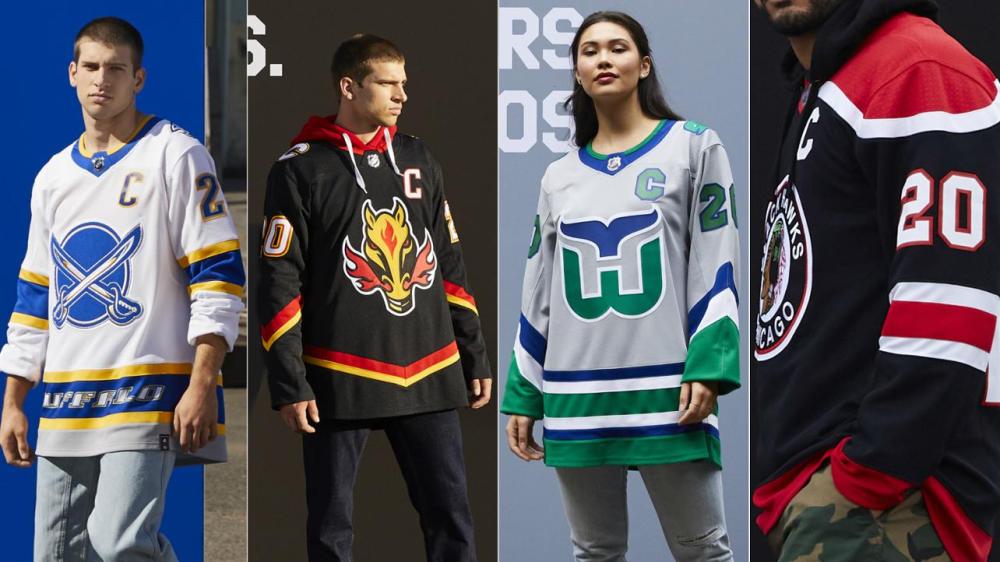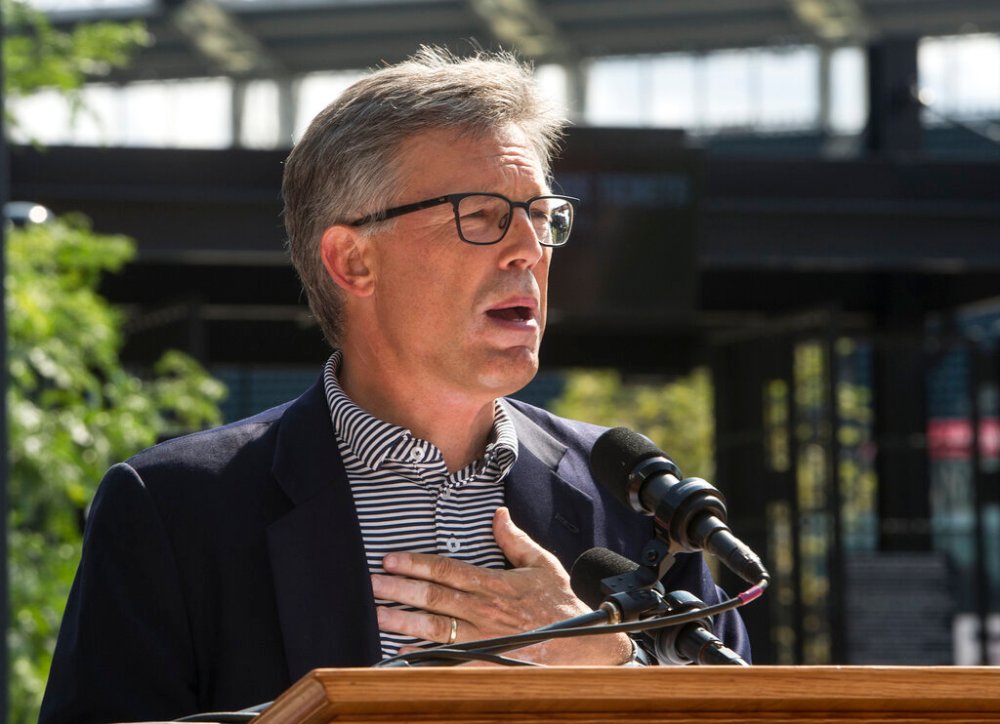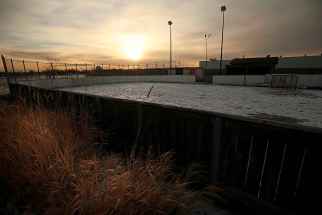Orginal Six NHL team still doesn’t get it Chicago franchise stuck in past in refusing to change team name
Read this article for free:
or
Already have an account? Log in here »
To continue reading, please subscribe:
Monthly Digital Subscription
$0 for the first 4 weeks*
- Enjoy unlimited reading on winnipegfreepress.com
- Read the E-Edition, our digital replica newspaper
- Access News Break, our award-winning app
- Play interactive puzzles
*No charge for 4 weeks then price increases to the regular rate of $19.00 plus GST every four weeks. Offer available to new and qualified returning subscribers only. Cancel any time.
Monthly Digital Subscription
$4.75/week*
- Enjoy unlimited reading on winnipegfreepress.com
- Read the E-Edition, our digital replica newspaper
- Access News Break, our award-winning app
- Play interactive puzzles
*Billed as $19 plus GST every four weeks. Cancel any time.
To continue reading, please subscribe:
Add Free Press access to your Brandon Sun subscription for only an additional
$1 for the first 4 weeks*
*Your next subscription payment will increase by $1.00 and you will be charged $16.99 plus GST for four weeks. After four weeks, your payment will increase to $23.99 plus GST every four weeks.
Read unlimited articles for free today:
or
Already have an account? Log in here »
Hey there, time traveller!
This article was published 14/12/2020 (1826 days ago), so information in it may no longer be current.
Here’s a good rule of thumb for any sports organization: if you’re unveiling an exciting new jersey — one you hope fans are going to rush to add to their collection — and you’re afraid to show the supposedly iconic logo because of the controversy surrounding it, then you may have a problem on your hands.
Yeah, I’m looking at you, NHL team Chicago.
The Original Six NHL franchise went to obvious lengths last month to hide their traditional crest — a Native American head with feather headdress and face paint — from public scrutiny on their new “Reverse Retro” jerseys released by Adidas. Unlike the other 30 NHL teams that released front views, the Blackhawks initially only provided back and side angles. One video even had the model comically holding his arm directly over the front to prevent anyone from getting a good look.
All the Chicago franchise ended up doing was drawing more attention to its stubborn refusal to change with the times, unlike what numerous teams have done recently when it comes to doing something about cultural appropriation and harmful stereotypes. The Cleveland Indians have just become the latest, announcing Monday they will change the name they’ve been known by since 1915, but not until after the 2021 season.

This follows in the recent footsteps of the Washington Redskins, Edmonton Eskimos, University of North Dakota Fighting Sioux, Morden Mohawks and Neepawa Natives, among others.
“Hearing first-hand the stories and experiences of Native American people, we gained a deep understanding of how tribal communities feel about the team name and the detrimental effects it has on them,” Cleveland team owner and chairman Paul Dolan said in a statement on Monday, announcing the rebranding process will focus on a non-Native American-based name in time for the 2022 MLB season.
I’ll temper my praise, considering the light should have gone on a long time ago. For a team that plays its home games at a stadium named Progressive Field, Dolan’s crew sure has a funny way of showing it. Native Americans and other activists have been protesting outside the baseball stadium for more than two decades, demanding the team drop the offensive nickname it has carried since 1914.

The silence from the organization was deafening. Oh sure, they tried to make everything go away a couple years ago when they dropped their buck-toothed, red-faced mascot “Chief Wahoo,” but pressure kept mounting. As it should have, coming to a head now that the Washington Football Team (as they’re currently known) finally did an about-face earlier this year.
Now the spotlight is on Chicago, which is very much on the clock. The furthest they’ve gone so far is to announce last summer they will no longer allow fans to wear costume headdresses at home games or team events, which should have been outlawed ages ago. (The Winnipeg Jets did the same thing in 2015 after a fan showed up at Bell MTS Place wearing one).
“These symbols are sacred, traditionally reserved for leaders who have earned a place of great respect in their Tribe, and should not be generalized or used as a costume or for everyday wear,” the team said in a statement.
“These symbols are sacred, traditionally reserved for leaders who have earned a place of great respect in their Tribe, and should not be generalized or used as a costume or for everyday wear.”
– Chicago Blackhawks statement announcing they will no longer allow fans to wear costume headdresses at home games or team events
But they doubled down on their decision to keep both the name and logo, which is meant as a tribute to a real life Native American, Black Hawk of Illinois’ Sac & Fox Nation “whose leadership and life has inspired generations of Native Americans, veterans and the public.”
Which would be a lovely sentiment if everyone was on board. But that isn’t the case, with hundreds of prominent groups calling for change, including the American Indian Center of Chicago, which dropped a working arrangement with the Blackhawks last year on the grounds they are continuing to perpetuate “harmful stereotypes.”
Taking a stand with fans was a good start. But it’s not nearly enough. It’s time to take a long look in the mirror.
Here’s the thing, folks. This isn’t for me to decide what’s right, any more than it should be for Chicago owner Rocky Wirtz. It’s not our place to do anything but shut up and listen to those who are truly impacted by these decisions, and react accordingly.
“There’s dignity in a school being named after a person or a people. There’s dignity in a health clinic or hospital. There’s nothing dignified in something being so named (that is used for) recreation or entertainment or fun,” said Suzan Harjo, a prominent advocate for American Indian rights who has been awarded the U.S. Presidential Medal of Freedom and echoes the sentiments of many when it comes to the Blackhawks name and logo.
As we saw this summer with widespread protests over ongoing racial injustices including the killing of a black man, George Floyd, at the hands of Minnesota police, these are important issues that have been ignored for too long.
Slowly but surely, sports teams are starting to listen. Some of them, anyways.
The Atlanta Braves may have distanced themselves from their Native American logo in the 1980s, but still do little to discourage MLB fans from doing the “tomahawk chop” and chants often seen and heard at their games. Fans of the NFL’s Kansas City Chiefs have also been known to partake in a similar offensive spectacle. This is appropriation, and there’s no place for it in today’s society. Continuing to allow it is to give casual, everyday racism a free pass.
Same goes for the Chicago NHL team, which try as it might can’t continue to stick its head in the sand and hope this all just goes away, the way they apparently thought they could with the debacle that was their new jersey reveal.
Unfortunately, these debates quickly become divisive and ugly. U.S. President Donald Trump, as he’s often prone to do, poured fuel on the fire by tweeting “Oh no! What is going on? This is not good news, even for ‘Indians.’ Cancel culture at work!” in response to Cleveland’s decision this week.
If your defence to all this is “but it’s always been this way,” you’re fighting a losing argument. Fact is, what was acceptable in the past doesn’t always stand the test of time, and thank goodness for that. History is littered with examples.
Whether it’s removing Confederate statues in the southern U.S. or changing offensive sports names and mascots, it’s never too late to listen, learn and do the right thing. The sooner organizations such as the Chicago hockey team finally realizes that, the better.
mike.mcintyre@freepress.mb.ca
Twitter: @mikemcintyrewpg

Mike McIntyre grew up wanting to be a professional wrestler. But when that dream fizzled, he put all his brawn into becoming a professional writer.
Our newsroom depends on a growing audience of readers to power our journalism. If you are not a paid reader, please consider becoming a subscriber.
Our newsroom depends on its audience of readers to power our journalism. Thank you for your support.









